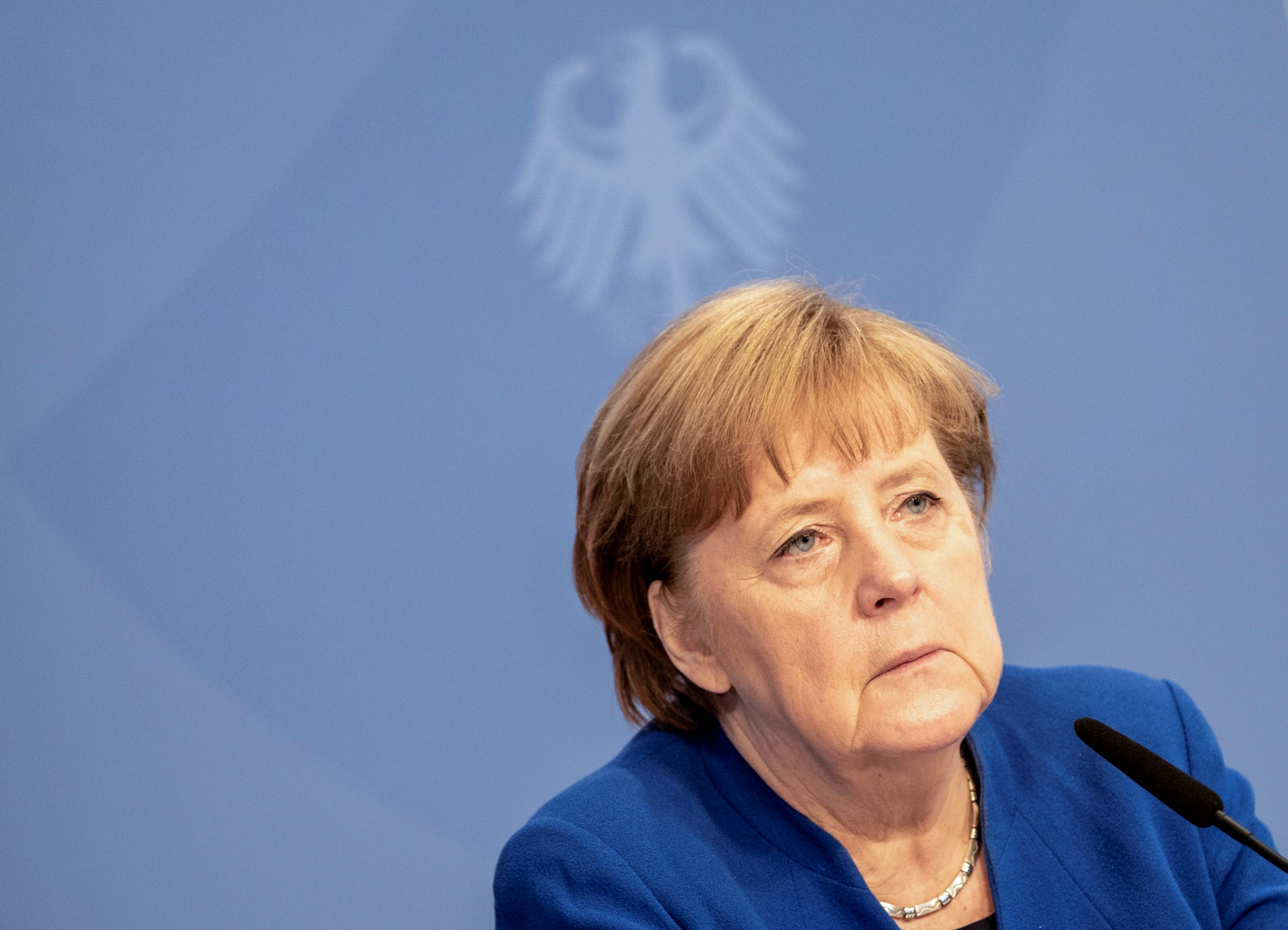Germany’s chancellor may have been hesitant to describe herself as a feminist in the past, but as Angela Merkel counts down her last few days in office, it would appear she is making her position known.
Speaking to reporters after an event with Nigerian writer Chimamanda Ngozi Adichie in Düsseldorf on Wednesday, Merkel spoke about her new perspective on feminism.
“Essentially, it’s about the fact that men and women are equal, in the sense of participation in society and in life in general. And in that sense I can say: ‘Yes, I’m a feminist.'”
‘We should all be feminists’
The comments were a turnaround from an awkward exchange at the Women20 summit in Berlin in 2017, when Merkel was asked directly if she was a feminist.
In that instance, Merkel did not answer the question directly, prompting criticism and disappointment from many.
At Wednesday’s event Germany’s first female chancellor was more candid and admitted her reticent approach from the past.
“I was a bit shyer when I said it. But it’s more thought-out now. And in that sense, I can say that we should all be feminists.”
Her comment prompted a round of applause from the audience, as well as enthusiastic endorsement from Adichie— whose 2012 TEDx talk-turned book We Should All Be Feminists has been hailed as a cornerstone text of 21st century feminism.
We can’t help but love Chimamanda’s joyful outburst when the German Chancellor, Angela Merkel agreed that we should all be feminists.#ChimamandaMerkel pic.twitter.com/tMckqwtnIb
— GLG Communications (@GLGcomms) September 8, 2021
Icons of feminism
The event included a panel discussion hosted by journalists, Miriam Meckel and Lea Steinacker. They spoke about the similarities between Adichie and Merkel, both of whom are considered to be feminist icons in their own rights.
Merkel opened up about her experiences as a young girl and told the audience about what had shaped her growing up.
“The fact that I grew up with mentally handicapped people as a child and had no fear,” she said. “That I studied physics,” Merkel went on, recalling how she was among a small percentage of women studying in a male-dominated discipline.
Merkel said on many occasions she battled to get to a table to conduct experiments, which taught her to fight for her position.
A different Germany
Merkel also spoke about the differences she has seen in German society over the past few decades.
“I must say, however, that something has changed in our country, well, in Germany it has,” she continued.
“I wouldn’t have noticed 20 years ago if a panel discussion had been all men. I no longer think that’s OK. There’s something missing,” Merkel said.
The outgoing chancellor also said she would be leaving office with a clear conscience and having done what she could.
“I think I have done my bit, and anyone who hasn’t understood it now won’t understand it in the next four years,” she said.
Germany will head to the polls on September 26 to elect a new parliament which will pick Merkel’s successor as chancellor.
In recent weeks, Merkel has emphatically endorsed Christian Democratic Union (CDU) candidate Armin Laschet to succeed her.
As for what comes next, Merkel said she needs space to figure out her next steps after 16 years as chancellor.
“I’ve resolved to do nothing for the time being and wait and see what happens. And that, I find, is very fascinating.”
This article first appeared on Deutsche Welle. Read the original here.
Featured image credit: Reuters

